Publications
Articles, publications, books, tools and multimedia features from the U.S. Institute of Peace provide the latest news, analysis, research findings, practitioner guides and reports, all related to the conflict zones and issues that are at the center of the Institute’s work to prevent and reduce violent conflict.
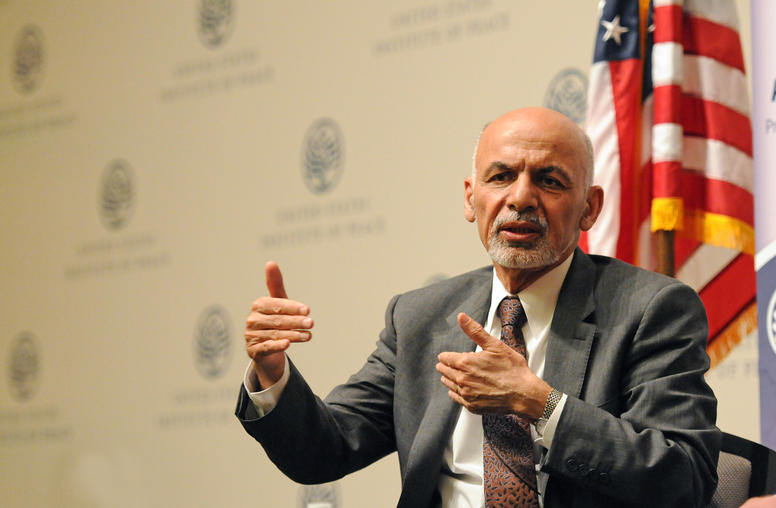
Afghan President Ghani: Freeing Prisoners Can Speed Peace Talks
Afghanistan’s government is accelerating its release of thousands of Taliban prisoners as a step toward peace talks, President Ashraf Ghani told an online audience today. The number of prisoners freed should now surpass 3,000, Ghani said, announcing that 2,000 more will be released “within a very short period.” That move, taking the total of freed Taliban fighters to 5,000, would fulfill a central Taliban pre-condition for peace talks. Ghani voiced optimism that a rare “window of opportunity” has opened for peace negotiations, but said further steps are vital to seize the chance to end the nation’s 40-plus years of warfare.
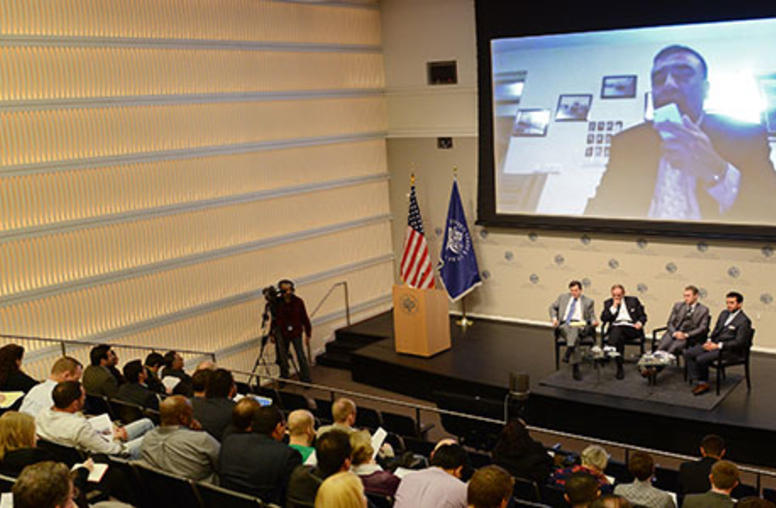
Next Steps for Afghanistan
“The Afghan people voted for change. Change in life, in educational and employment opportunities, in better governance,” Shahmahmood Miakhel, USIP’s Afghanistan country director and former Afghan Deputy Minister of Interior, said at a USIP event First Impressions of the Afghan Elections on April 9.
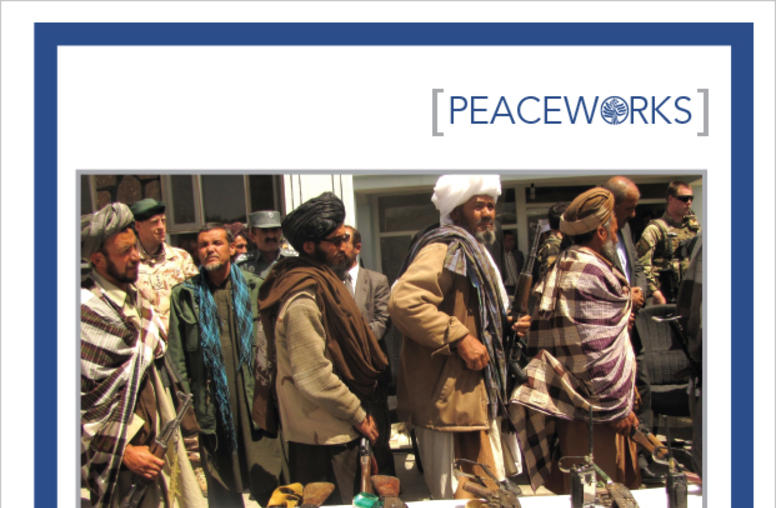
The Politics of Disarmament and Rearmament in Afghanistan
Four international programs designed to disarm, demobilize, and reintegrate militias in Afghanistan since 2001 have largely failed. They have instead largely reinforced existing power relations. Perhaps their gravest impact has been to deepen patterns of political exclusion that underlie much of the violence that have driven support for the insurgency. Demilitarization, this report makes clear, is only part of a wider political process, both with Taliban leaders and between pro-government fac...
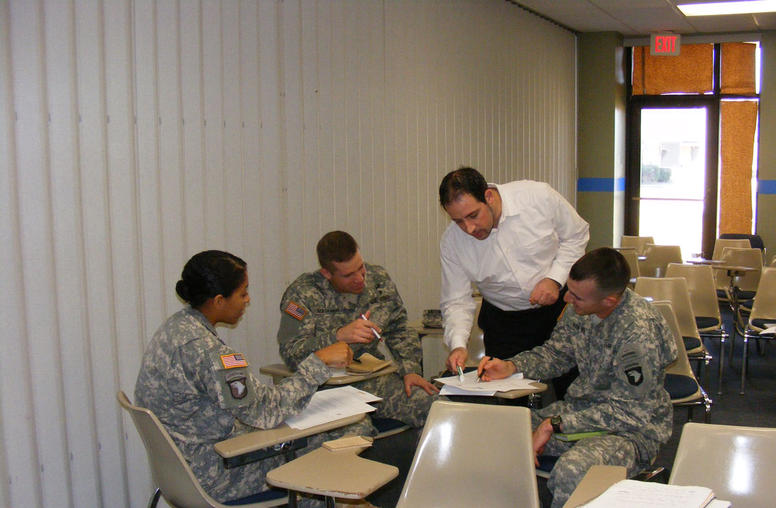
USIP Trains Afghanistan-Bound Unit of Army’s 101st Airborne
For the first time, the U.S. Institute of Peace (USIP) has sent a team of its conflict-management specialists to train an entire U.S. military unit preparing to deploy to a war zone—Afghanistan.
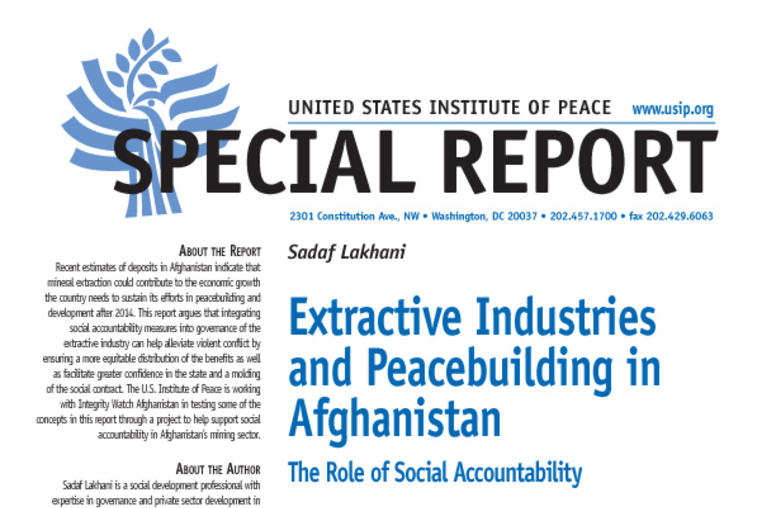
Extractive Industries and Peacebuilding in Afghanistan: The Role of Social Accountability
Mining operations in Afghanistan could be an important generator of economic growth for the country, but they also spark conflicts over environmental effects and perceptions that the economic benefits have been distributed unfairly. Local communities, the government, and mining companies would all benefit from mechanisms that focus on transparency and mediate grievances around these industries.
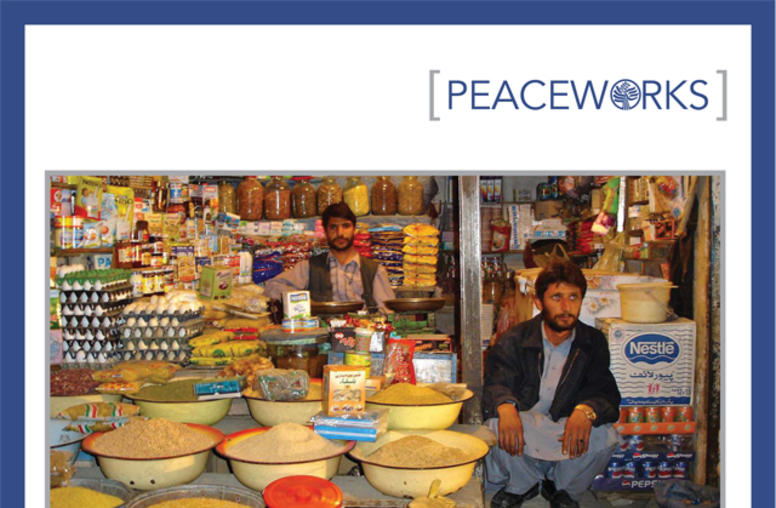
A New Approach to Understanding Afghanistan's Transition
When it is compared with other countries that have undergone transition, Afghanistan is revealed to be stronger than many on economic performance but weaker than the norm for governance and rule of law. If its strengths are supported and weak areas are targeted for improvement, the country will improve its prospects for a successful transition, say the authors of this new report.
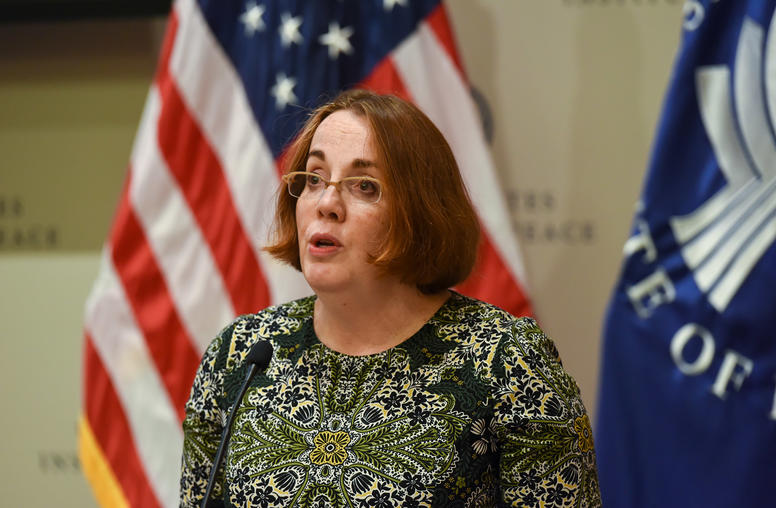
U.S.-Taliban Deal is a “Massive Opportunity,” Says U.S. Negotiator
After a year and a half of negotiations, the U.S. and Taliban have reached an interim agreement to reduce violence for a period of seven days. If that agreement holds, the two sides will formalize a pact that would lead to intra-Afghan negotiations and a phased U.S. troop withdrawal. Although the reduction in violence is an important achievement, it is but one step on a long, rocky road to peace, noted current and former senior U.S. officials on February 18 at the U.S. Institute of Peace.
Urgent Imperative: Get Afghanistan’s Government Working
Ten weeks after the Taliban briefly captured Kunduz, Afghanistan’s fifth-largest city, neither the fractured government nor the country’s political class is showing signs of heeding that wake-up call—or the other flashing warnings that the 14-month-old government is close to failure. While the United States quickly announced the reversal of its planned withdrawal of forces from the country, the factions in Kabul must figure out how to cooperate in governing, and Washington must do all it can to advance that, analysts say.
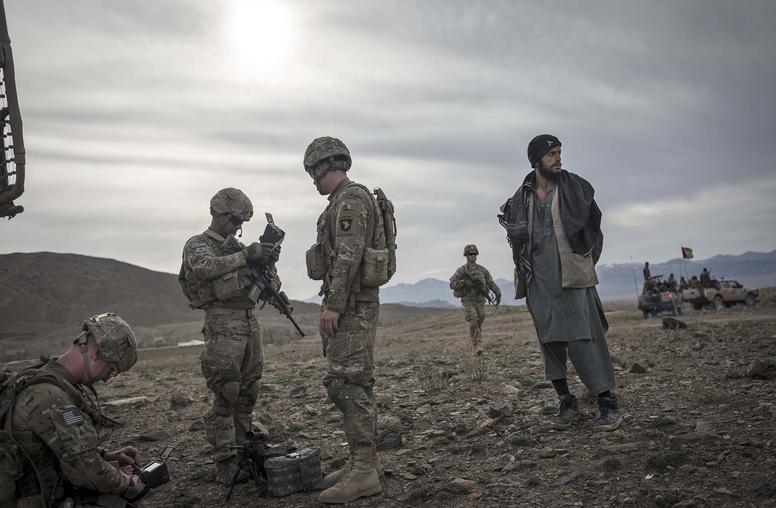
Afghanistan Withdrawal Should Be Based on Progress on Peace, Study Group Says
The Biden administration should commit to the Afghan peace process but seek an extension of the May troop withdrawal deadline stipulated in the February 2020 U.S.-Taliban deal, said the bipartisan Afg...
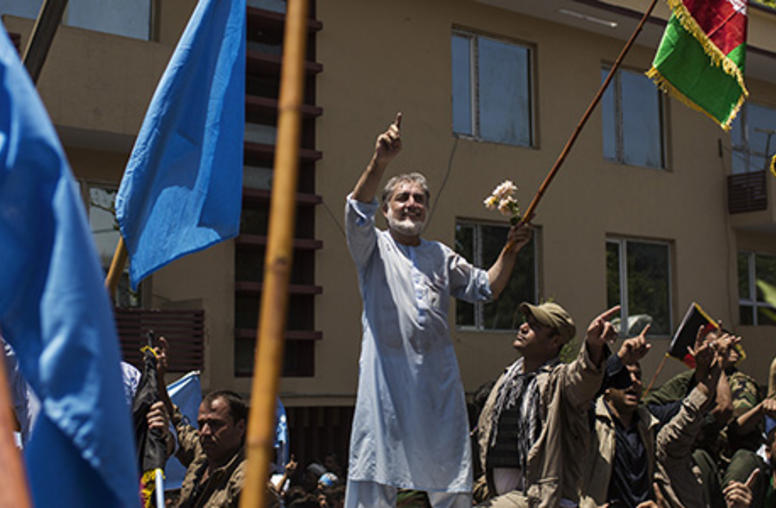
Afghans Still Enthusiastic About Vote
After the first round of voting in the presidential race in Afghanistan, where over 7 million Afghans went to the polls on April 5, 2014, a handful of political pundits and interest groups urged the two leading candidates, Dr. Abdullah Abdullah and Dr. Ashraf Ghani Ahmadzai, to make a deal to avoid a second round scheduled for June 14. President Karzai played an active role in brokering between the candidates and the political elite. A range of arguments were put forth on behalf of such a dea...